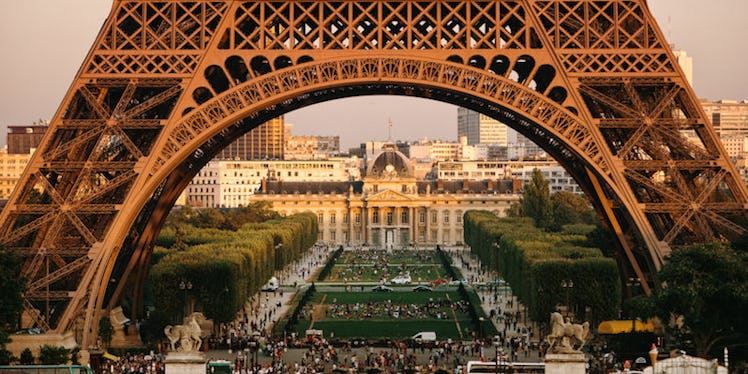As I looked out the window at the dreary Dublin sky this past Saturday and listened to the cars race by, the first thought to cross my mind was, “What if I’d been in Paris this weekend?”
Having spent the past week traveling throughout Germany and Amsterdam, I found myself utterly sobered by the mere idea that it could have been me enjoying a coffee at a café when disaster struck.
As a kid, my parents' and teachers' best attempt to teach me empathy was that old saying of pretending to walk in someone else’s shoes.
I’m good at visualizing things. I’d imagine if I were born into slavery or confined to a concentration camp.
Sure, I’d feel bad for a moment.
Then, I’d go back to living the safe, sheltered and privileged life I feel so “blessed” to live.
The fact is, I have no idea what it’s really like to be in such a situation.
I have no idea what it’s like to be a student of color who feels persecuted because of the name of a building on her college campus, or what it's like to be one of the millions of Syrian refugees fleeing home.
Perhaps I’ve never felt more able to empathize with someone than I did when I stood in my room and thought about how Nohemi Gonzalez was killed while studying abroad in France.
A senior at CSU Long Beach, Nohemi was studying at Strate College of Design in Sèvres, which is 40 minutes outside of Paris.
In the city just for the weekend, Nohemi was reuniting with friends who’d come to visit her from the States.
In an instant, this experience of studying abroad that I have found to be so life-giving, enriching and fun, turned out to be deadly.
How is Nohemi’s trip to Paris to visit friends any different from me going to visit my friend Hannah in Germany last weekend?
It’s not.
The only difference is the terrorists bombed Paris, not Frankfurt.
Now, Nohemi and 128 others are dead.
It is in no way my intention to instill even more fear when I say we’d be naïve to think the same thing could not happen to any of us.
With threats recently made against Washington DC and several states (California included), it sure does seem like nobody is safe.
It sucks that the only solace I have about living in the heart of Dublin right now is the fact that Ireland has done a pretty good job of not making too many enemies or bombing any other country since the 90s.
In response to the attacks in Paris, both Trinity and Holy Cross sent out emails saying all members of their respective communities were accounted for and safe.
Still, when one of my peers -- clearly impacted by what had taken place -- tried to relate what had happened in Paris to material we were covering in class, the professor was, for the first time all term, at a loss for words.
Overwhelmed by being faced with material not on the syllabus, he sat there tongue-tied.
As much as I think school is exactly the place where we should be discussing realities such as these, I don’t blame my professor for immediately channeling the conversation right back to the course text.
What the hell is anyone supposed to say? How can we justify what happened in Paris? Who can we blame and hold accountable?
When will all of this violence stop?
In a recent post on her own blog, a fellow Crusader who’s studying abroad at Oxford for the year asked another question:
“Is there a ‘right’ way to mourn?”
In addition to making a beautiful petition for love and light amidst such horror, Hildie makes an exceptional argument for why filtering my Facebook profile picture with the French flag wasn’t the best response to what happened on Friday.
I would hate to come off as ignorant or dispassionate to the other, far-too-numerous instances of suffering in the world at present.
Considering the fact that Al-Shabab militants in Kenya killed 47 students earlier this year and ISIS downed a plane with 237 people on-board two weeks ago -- not to mention killed 43 in Beirut the day before the attacks in Paris -- it’s clear it’s not just those affected by the attacks in Paris who are wounded and hurting.
I like #PrayForParis.
But I want to cast a wider net: #PrayForPeace.
